Corporate Oversight Vs. Creative Liberty: The “Superhero” Trademark Case As a Legal Milestone
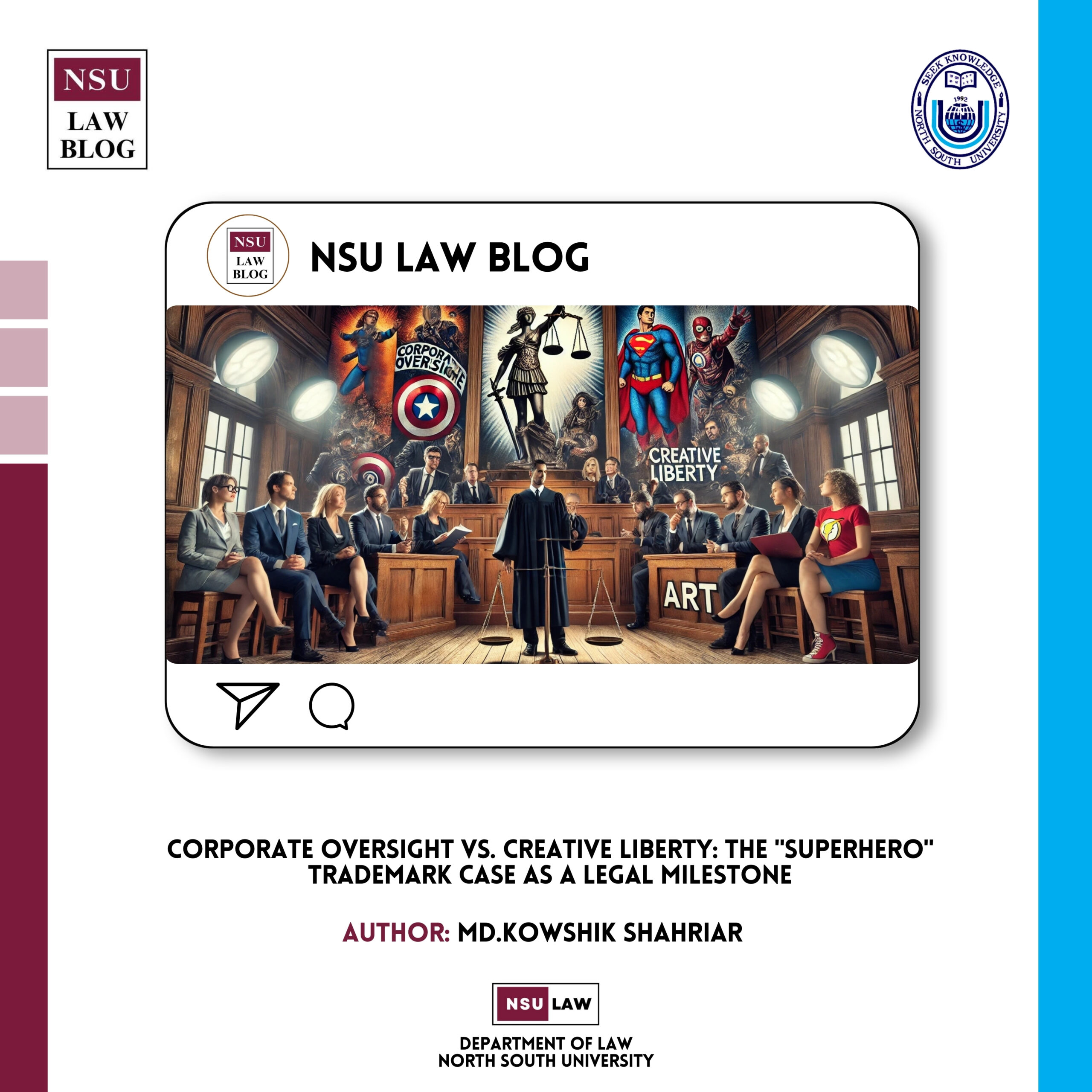
The two titans of the superhero storytelling industry DC and Marvel, have not only defined global perceptions of superheroes but also revolutionised the entire genre of comic book storytelling. The superhero genre has had a special place in the emotions of fans of every generation, from creative individuals to kids who grow up idolising heroes from comic books, radio, TV series, movies, toys, and video games from all over the world. Many of these fans have not only admired existing heroes but also channelled their imagination into making their own heroes, sometimes with remarkable creativity. Yet, despite their efforts, none achieved fame — even when their creations gained some level of recognition by seeing success and potentiality.
This could be the subject of litigation primarily in the United States (as the trademark is registered with the U.S. Patent and Trademark Office) if it was referred to as a “superhero” genre. However, International treaties like the Paris Convention for the Protection of Industrial Property (1883) and the Agreement on Trade-Related Aspects of Intellectual Property Rights (TRIPS, 1995) enable entertainment corporations like DC and Marvel to technically extend the territorial reach of their trademark protection, making it difficult for others to use the term “Superhero” commercially in other countries. As under Article 6 quinquies of the Paris Convention, trademarks registered in one member country shall be recognized and protected in other member countries of the Union, subject to certain exceptions. These safeguards are further strengthened by Article 16(1) of the TRIPS Agreement, which gives trademark owners the only authority to stop third parties from using identical or similar marks in situations, where doing so would confuse consumers. They can thus use these to their advantage by enforcing their rights all over the world, akin to how they do business in the United States, by issuing cease and desist orders, demanding fines, and filing lawsuits.
A recent landmark decision by the U.S. Trademark Office tribunal has altered the landscape by cancelling the “Superhero” trademarks owned by Marvel and DC. The superhero comic artists, TV series creators can now refer to their creative works as superheroes without worrying about legal repercussions —this decision is no less than any legal milestone in the protection of creative liberty and a win over artistic expression.
The rationale behind this judgement can be made pretty much clear through an example— the term “Superhero” is so broad and generic that one might definitely use the “Superhero” meaning as “a type of heroic stock character” rather than “a type of character featured in Marvel or DC comic books”. For instance, the term “Super hero” is often associated with comic books, genres, or specific heroes, and may even be associated with non-DC or non-Marvel characters like The Green Hornet, Invincible, The Tick, or Kick-Ass. The exclusivity of the term “Superhero” owned by Marvel and DC, was limiting creative expression over a globally shared generic term. So whether a term as broad and generic as “Superhero” should be trademarked by any corporation or not — has been a long going debate. And it is relatively unusual for competitors to jointly own a trademark, as traditional trademark rules typically involve collaboration between the companies. It was always the “Marvel Super Hero This” or “DC Super Hero That” type scenario.
For over 50 years, DC and Marvel, the two titans of the superhero Industry, jointly owned the trademark for the term “Superhero” (and its derivatives, such as “Super”), which conflicted with the goals of creative people and businesses similar to that. This trademark suppressed creativity under the pretence of preserving intellectual property, forcing authors or businesses to either give up or abandon their original work under the ‘so-called’ infringement of this. Marvel and DC might have taken the concept to heart that the value of trademarks is strongly correlated with customer perception. A mark’s value in the marketplace increases with its distinctiveness and ease of enforcement.
The comic books, TV series, and movies by Marvel and DC often glorify vigilantism, portraying “superheroes” as defenders often taking laws into their hands to bring justice. As we already know, these large entertainment corporations monopolised this popular imagery, by including “Superhero” (and variants like “Super”) terms as their own trademarks. So, while promoting vigilante justice as a heroic stance, imposing rigid controls over such specific intellectual creativity around the globe was no less than a “cowardly” stance in a provocative argument.
The ‘vigilantism’ narratives portrayed on the big screen appeal to the audience’s sense of moral righteousness. But upon a deeper inspection through the lens of intellectual property (IP) law and corporate monopoly, there is a troubling paradox that interplay between these exalted portrayals and corporate control over intellectual property, which can be remarked as quite deceiving in the past few decades.
Entertainment corporations like Marvel and DC may argue — they were safeguarding their intellectual property rights by preventing others from profiting from their creations, and that this is within their legal rights. Even some critics may agree that they are simply limiting the production of their own works by others, which has been long pioneered by them.
Notably, it’s crucial to make clear to readers that Marvel and DC’s intellectual property is strongly protected by copyright law, which grants them exclusive rights over the use and distribution of their characters, storylines, and other creative elements they produce. So the question may inevitably arise – even after getting appropriate legal protection of their intellectual property, is the trademarking of the term “superhero” merely a strategy to monopolise a billion-dollar market? So, it was not the intellectual property itself, but rather the ownership of the general term “superhero” that was the subject of the long-going controversy. Under copyright laws, authors are explicitly granted exclusive rights to their work for a certain amount of time; after that, the content becomes publicly available—known as public domain. In a similar vein, Superman and Lois Lane will enter the public domain in 2034, followed by Batman in 2035, the Joker in 2036 and Wonder Woman in 2037.Chris Sims, a comic book author, and Batman expert, predicts a surge in unauthorised Batman comics following copyright expiration, with a good number expected. He added that Movie producers can create their own versions, similar to public domain characters like Dracula and Robin Hood, without the need for approval from the original creators. So contrary to the phenomenon, how about Superman versus Godzilla?
On September 26th,2024 at the request of a London-based comic book artist, a U.S. Trademark Office tribunal cancelled a set of “Superhero” trademarks jointly owned by comic book giants Marvel and DC . The USPTO’s Trademark Trial and Appeal Board ruled in favour of S.J. Richold’s Superbabies Ltd in Superbabies Limited v. Marvel Characters, Inc. and DC Comics, following Disney, Marvel, Warner Bros, and DC, who did not respond to Superbabies’ request for invalidation. Marvel and DC may seek to regain this trademark by appealing the TTAB’s decision, although they have yet to take any action in that regard.
Just before the decisions by courts, Richold, a comic book writer, was allegedly accused by DC of utilising their “Super” or “Superhero” trademarks without authorization. Back In May, his company Superbabies petitioned to revoke the marks, while they argued that trademark law does not allow companies to claim ownership over a genre, and “Super Hero” is a generic term, and moreover the two competitors cannot hold trademarks jointly.
Indeed, Marvel and DC Comics have been very successful in enforcing this trademark; typically, a merely well-written letter can convince an opponent to alter their plans, especially when DC was owned by Warner Bros and Marvel by Disney.
The monopolistic control by Marvel and DC dates back in 1982, when Leo A. Gutman, Inc. attempted to register the Super-Action Heroes trademark, which was later assigned to DC and Marvel. This set the standard for future attempted infringement, with DC and Marvel registering their interest in opposing such trademarks and the companies either abandoning or handing over the trademark. This is basically how the matter has stood for the last forty years. Only one case succeeded, Burgman Pittsburgh’s Super Hero, which covers anti-drug education using juggling and skating. The law firm of Reichman Jorgensen Lehman & Feldberg (RJLF) announced a landmark victory in its trademark case. It obtained an order from the U.S. Patent and Trademark Office cancelling Marvel and DC Comics’ joint trademark for the word “Superhero” and thus allowing its clients, S.J. Richold and Superbabies Limited, to freely use the term.
RLJF’s cancellation petition outlined the history of the “Superhero” trademark and the ways in which Marvel and DC have used it to prevent smaller comic creators from using the term, in spite of it being an incredibly generic one these days.
This landmark case of “superhero” that shows solidarity towards the defending creative liberty and preventing undue restrictions on creative expression is paramount. Similarly, despite nations’ jurisdiction, countries from all over the world should review intellectual property (IP) regulations and creative freedom by balancing trademark protection and innovation.

Md. Kowshik Shahriar3 Posts
Md.Kowshik Shahriar is an Editor At Nsu Law Blog. Additionally, He Is a Research Assistant (RA) At The Department Of Law, North South University (NSU). He Is also Completing His Undergraduate LLB(Honors) from NSU.He has already made significant contributions to legal scholarship, having authored notable number of articles, op-eds in reputable newspapers. He can be Reached at info.kowshikshahriar@gmail.com
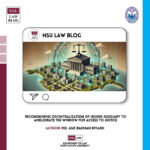
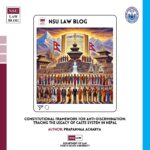
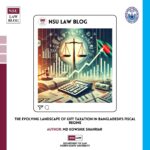
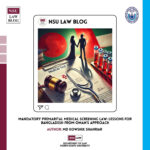
0 Comments